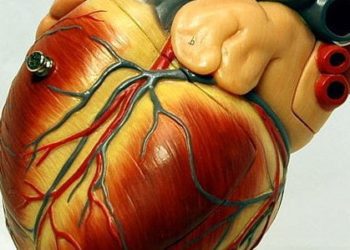Analysis confirms guidelines on PCI versus CABG
Image: PD
1. Bayesian analysis of randomized controlled trials and cohort studies of patients with unprotected left main coronary artery disease (ULMCAD) supports current guidelines.
2. Percutaneous intervention (PCI) and coronary artery bypass graft (CABG) were found to be comparable treatments for ULMCAD and medical therapy only was associated with higher 1-year mortality.
Evidence Rating Level: 2 (Good)
Study Rundown: A Bayesian cross-design and network meta-analysis arrived at the same conclusions as most approaches in its constituent studies regarding management of patients with unprotected left main coronary artery disease (ULMCAD). With slightly wider credible interval, the Bayesian analysis concluded that PCI and CABG are comparable treatments for this patient population, and that medical therapy is inferior.
Click to read the study in Circulation
Click to read an accompanying editorial in Circulation
Relevant Reading: Bayesian perspectives for epidemiological research: Foundations and basic methods
In-Depth: 19 studies, 12 comparing PCI versus CABG and 7 comparing CABG versus medical therapy, were weighted according to Bayesian methods that distinguished randomized controlled trials and cohort studies. A separate analysis also distinguished older studies in the analysis by assigning them less weight. The 95% Bayesian credible interval comparing PCI versus CABG 1 year mortality from the cross-design meta-analysis was 0.68 to 1.45 with an OR of 1.01, suggesting no significant difference. These findings were similar to results of frequentist approaches, both by fixed-effect and random-effects.
By Gina Siddiqui and Allen Ho
More from this author: Cardiac surgery risk stratification scores correlate poorly with costs, Transcatheter aortic valve replacement (TAVR) for severe aortic stenosis, Hybrid operating rooms shed light on coronary status in aortic dissections [Physician comment]
© 2013 2minutemedicine.com. All rights reserved. No works may be reproduced without written consent from 2minutemedicine.com. Disclaimer: We present factual information directly from peer reviewed medical journals. No post should be construed as medical advice and is not intended as such by the authors or by 2minutemedicine.com. PLEASE SEE A HEALTHCARE PROVIDER IN YOUR AREA IF YOU SEEK MEDICAL ADVICE OF ANY SORT. Content is produced in accordance with fair use copyrights solely and strictly for the purpose of teaching, news and criticism. No benefit, monetary or otherwise, is realized by any participants or the owner of this domain.







